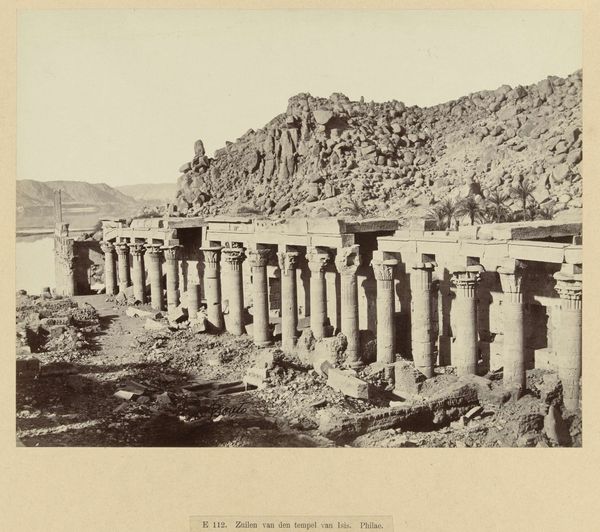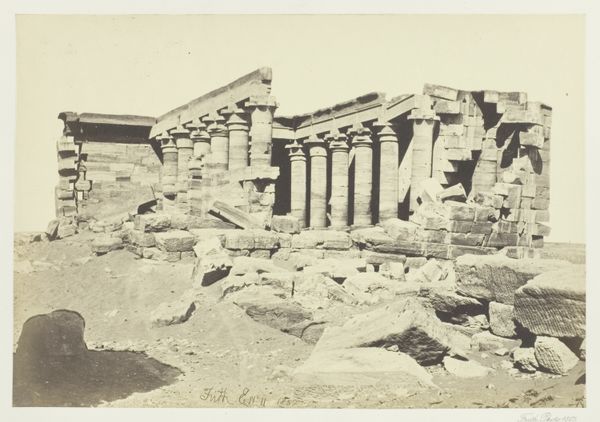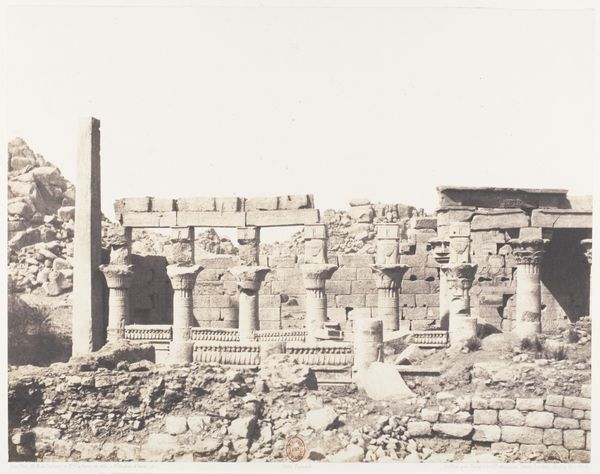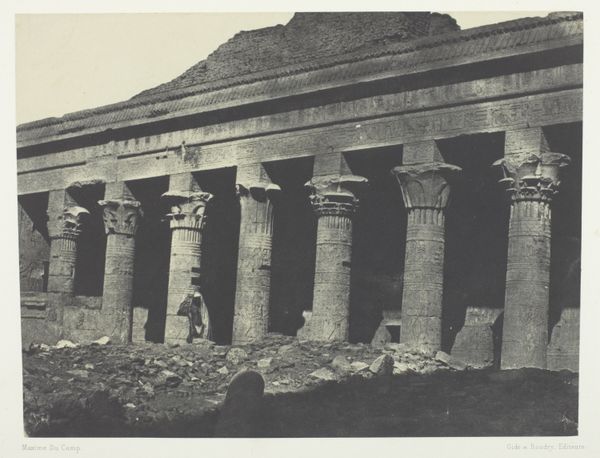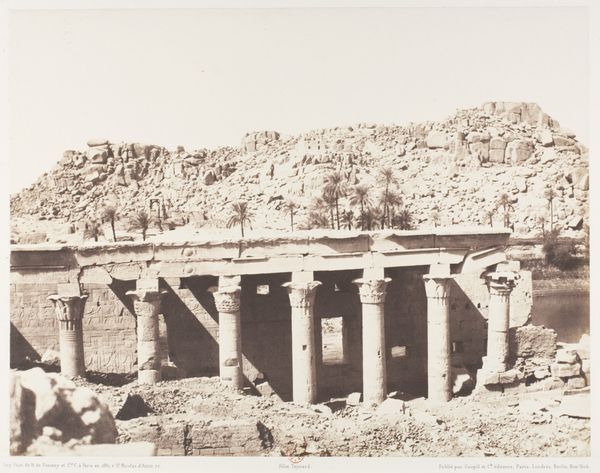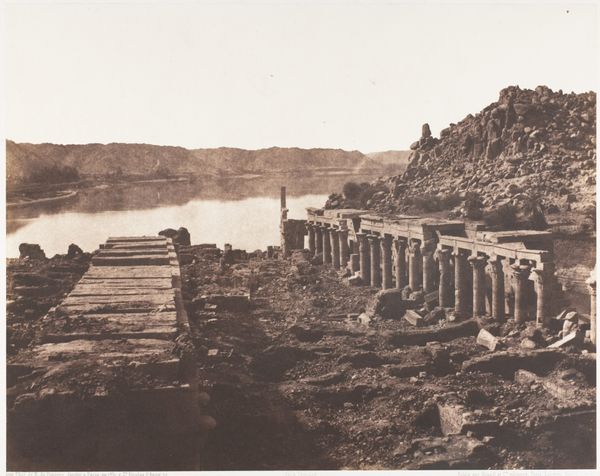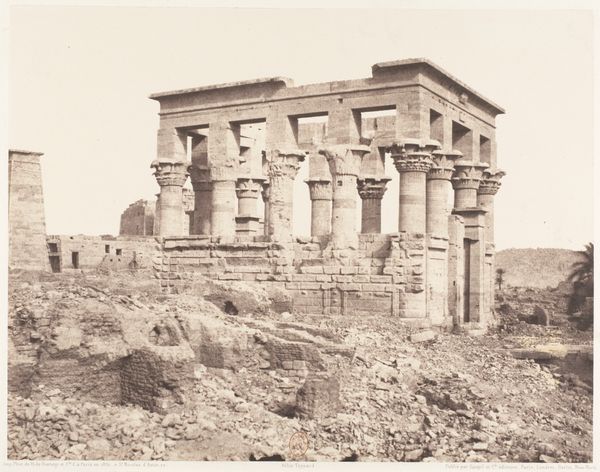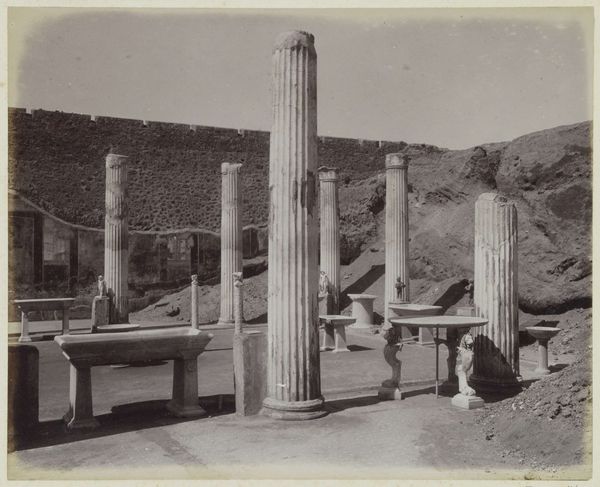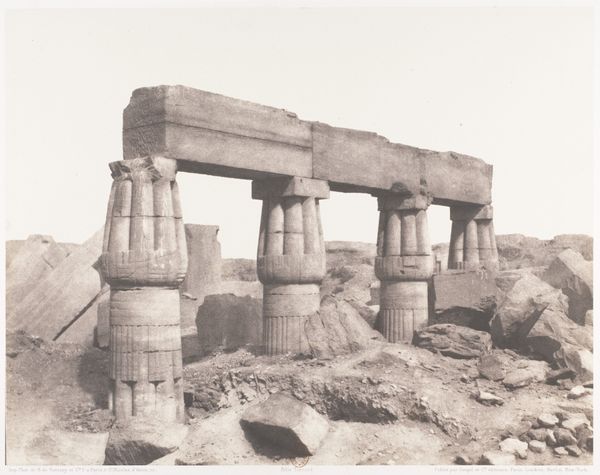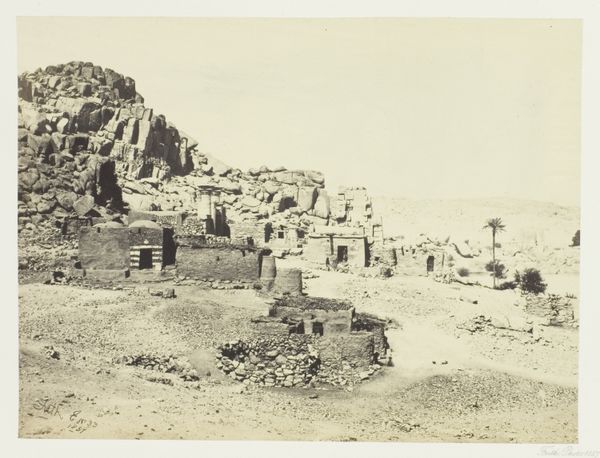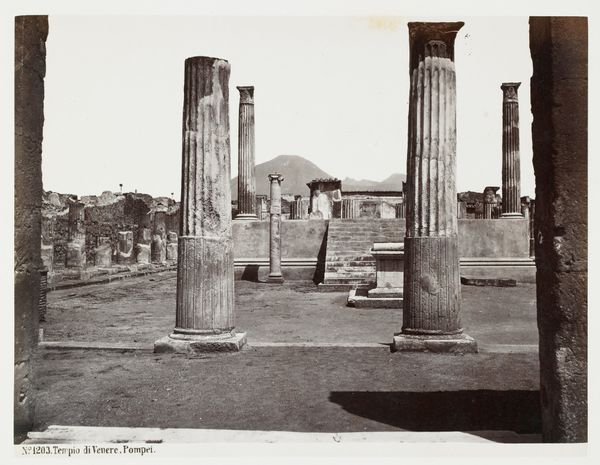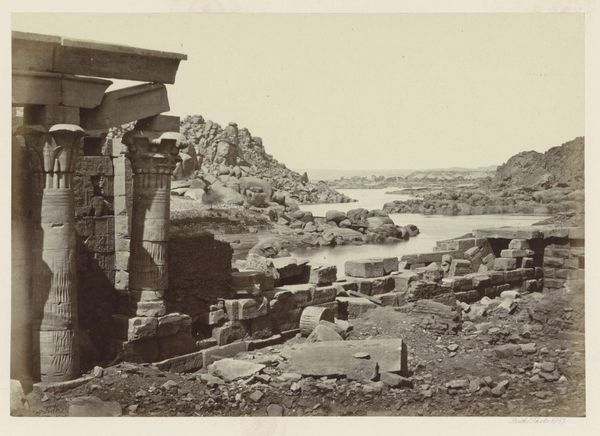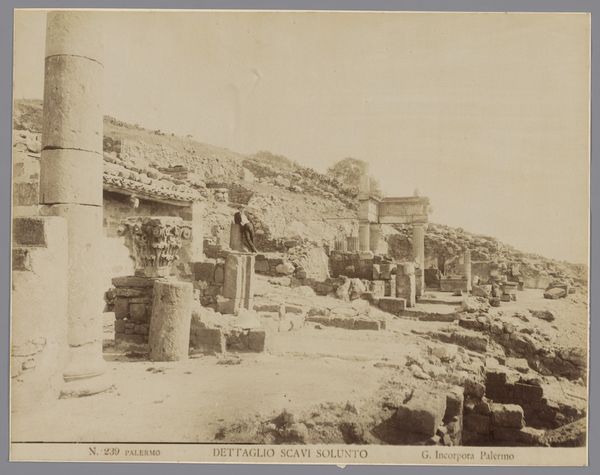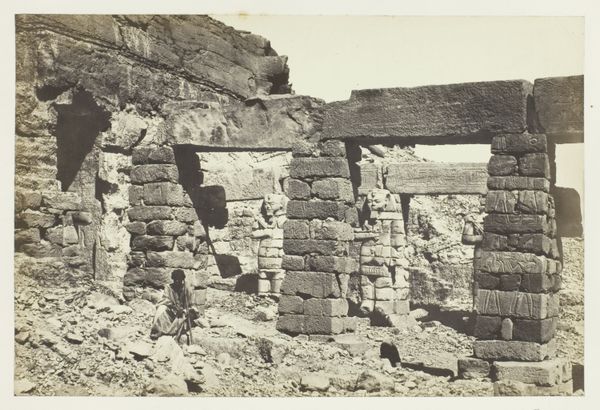
Ile de Fîleh (Philæ), Vue Génèrale Prise du Point I, Sur La Plateforme du Pylône 1851 - 1852
0:00
0:00
photography, albumen-print
#
landscape
#
ancient-egyptian-art
#
outdoor photography
#
photography
#
ancient-mediterranean
#
column
#
albumen-print
Dimensions: 23.8 x 30.7 cm. (9 3/8 x 12 1/16 in.)
Copyright: Public Domain
This photograph of the island of Philae in Egypt was made by Félix Teynard, using the calotype process. This early photographic technique involved coating paper with silver iodide, exposing it in a camera, and then developing it to create a negative image. The muted tones and soft focus are characteristic of calotypes, a direct result of the paper fibers and the challenges of controlling the chemical process. The image's appearance is also influenced by the arid Egyptian climate, which affected the light and atmosphere during the exposure. Teynard likely used a large-format camera, requiring a substantial amount of time and effort to set up, as well as porters and assistants. Consider the labor involved in creating this image, from the preparation of materials to the physical demands of working in a remote location. Photography at this time was a complex blend of science, craft, and physical endurance, far removed from the instant snapshots we take today. This photograph reminds us that seeing is never a neutral act; it involves both material processes and a specific cultural context.
Comments
No comments
Be the first to comment and join the conversation on the ultimate creative platform.
